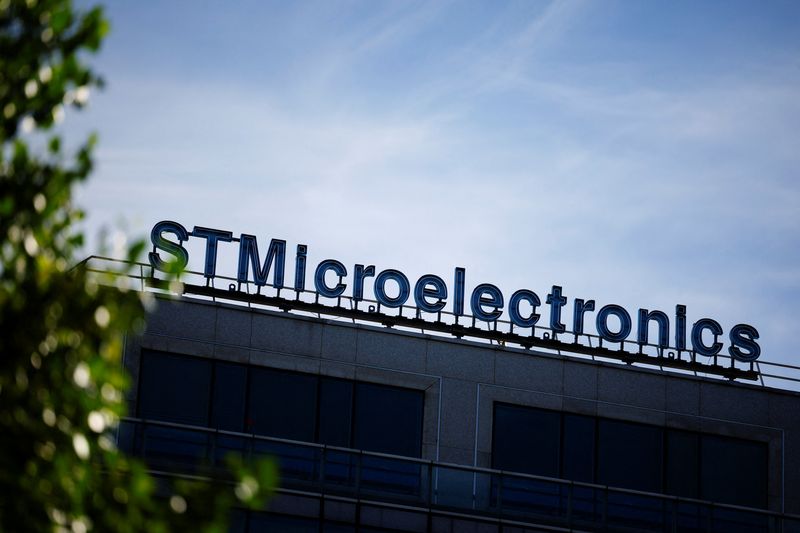By Mathieu Rosemain
PARIS (Reuters) - Investors brushed off upbeat comments by STMicroelectronics' boss on Thursday after the Franco-Italian chipmaker pointed to a slower pace of growth at year end, as falling demand for electronic products adds to fears of a global recession.
Shares of the Geneva-based company, whose biggest clients include iPhone maker Apple (NASDAQ:AAPL) and carmaker Tesla (NASDAQ:TSLA), were diving by close to 8% at 0907 GMT, making the stock the worst performer of France's blue-chip index CAC 40.
"Results are good but the outlook is disappointing," a Milan-based trader said, noting general caution about the sector's outlook.
Headwinds are building for the semiconductor industry, with rising Taiwan-China and U.S.-China tensions and red-hot inflation that could squeeze spending on cars, smartphones and other consumer products.
In a call with analysts, STMicro's boss said twice that the company had high visibility on the group's orders for the next six to eight quarters, with its manufacturing plants running at full capacity.
"This makes us very confident to drive the company on a trajectory of growth in 2023," Jean-Marc Chery said, confirming the group's target of $20 billion in yearly sales by 2027 at the latest.
Bigger rival Texas Instruments (NASDAQ:TXN) Inc said this week it expected demand across most of its end markets to decline, while South Korea's SK Hynix Inc warned of an "unprecedented deterioration" in memory chip demand.
STMicro said earlier it expected fourth-quarter sales to edge up by 1.8% from the previous quarter to about $4.4 billion. That contrasts with a jump of 12.6% in the three months that ended on Sept. 30.
Co-controlled by the Italian and French governments, STMicro said demand rose across all its products in the third quarter, beating market expectations, with total net revenue reaching 4.32 billion.

Gross margin stood at 47.6% in the third quarter, also above analysts' average predictions.
STMicro said it now expected full-year net revenue of $16.1 billion, up 26% on the year, as well as a gross margin of about 47.3%, in line with previous guidance.